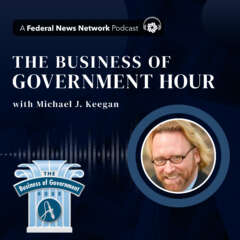This post first appeared on IBM Business of Government. Read the original article.

Articles & insights in public management & leadership that we have found of interest for the week ending September 30, 2022.
Fall Agency Priority Goal Updates. Read about agencies’ progress toward more than 80 APGs or use our new feature to explore APGs and strategic objectives by policy theme.
NEW GAO REPORT: Civil Service: Agency Responses and Perspectives on Former Executive Order to Create a New Schedule F Category of Federal Positions. The government created a new category of federal positions in 2020 for certain policy roles. GAO found that no agency placed positions into Schedule F before the executive order that created it was revoked in Jan. 2021—although a few considered doing so. If a future administration reinstates Schedule F, stakeholders told GAO that agencies should consider possible tradeoffs, such as effects on employee recruitment and retention.
HHS Needs to Tighten up Telehealth Oversight, GAO Says. The Department of Health and Human Services’ (HHS) Centers for Medicare & Medicaid Services (CMS) component has not comprehensively assessed the quality of care patients have received through telehealth services, and lacks some key data on telehealth services delivered in patients’ homes or via phone, according to a recent report published by the Government Accountability Office (GAO).By law, Medicare pays for telehealth services under limited circumstances. According to GAO, CMS took action to monitor some program integrity risks related to the telehealth waivers but has more to do on that front.
VA CIO: Security Should be Workforce’s Top Priority. The term zero trust is often used as a buzzword, but Department of Veterans Affairs (VA) Chief Information Officer (CIO) Kurt DelBene said a successful organization will prioritize security above all else and have zero trust baked into its workforce culture. DelBene explained that getting the workforce to embrace zero trust as part of its culture is “super important,” and security should be top of mind for all employees.
Assessing the relevance of governmental characteristics to address wicked problems in turbulent times. Governments have long faced traditional bureaucratic problems and developed a set of mechanisms to handle them, but few studies have examined the government’s underlying characteristics in addressing such problems. This report studies the relevance of a range of governmental characteristics during the COVID-19 pandemic and find that, while all government characteristics are sometimes relevant, no single characteristic is always relevant and so they are best treated as a portfolio.
Why Randomize? Policymakers, funders, implementing agencies, and more all need to decide which programs to support. How can they know which programs work? This video explains how randomized evaluations measure a program’s impact.
OECD Guidelines for Citizen Participation Processes. The OECD Guidelines for Citizen Participation Processes are intended for any public official or public institution interested in carrying out a citizen participation process. The guidelines describe ten steps for designing, planning, implementing and evaluating a citizen participation process, and discuss eight different methods for involving citizens: information and data, open meetings, public consultations, open innovation, citizen science, civic monitoring, participatory budgeting and representative deliberative processes.
A Guide to Budget Resources. Originally released a few years ago, @GreeneBarrett has updated this resource. 50-state clickable map is an invaluable guide to tons of info. about state budgeting.
Automation Allows State CIOs to Advance Citizen Service Delivery. Automation tools are helping state chief information officers (CIOs) drive more efficiency in government operations and advance citizen service delivery, according to state and local government experts. At MeriTalk’s State Tech Vision virtual event on Sept. 27, Wyoming State CIO Bill Vajda explained how process automation tools allow CIOs to have more time to focus on constituent-facing activities. “When you look at the real business of being a CIO – the back-office kind of functions that you’re looking to manage as efficiently as possible to free up resources that can actually take care of the constituent interaction – process automation tools can be very helpful,” Vajda said.
A 6-step method for effective change management. Leading organizations through a significant change requires a clear outcome, the ability to map out strategic actions and communication about why this new evolution is necessary, writes Karen Ball. “As you commit to building change capability in your organization, or restart a misguided effort, planning is an essential first step to ensuring that your strategy clearly aligns with your goals and unique needs,” Ball writes. Prosci
How reading can “upgrade” your leadership skills. Intentionally making time to read can give leaders more insight and wisdom and let them take in new perspectives and ideas, writes Joe Terrell. Terrell compares books to upgrades for our brains’ operating systems and notes that reading increases empathy. Carey Nieuwhof
How to use scenario planning to create strategies. Scenario planning can help companies develop more resilient long-term strategies by mapping out contingency plans for several possible future events and disruptions, writes Aine Doris, drawing on insights from Darden School of Business professors Jared Harris and Michael Lenox. Doris outlines four steps to gather the information needed and write out different scenarios. Darden Ideas to Action (University of Virginia)
 Next Week on The Business of Government Hour: Reflections on Public Service: A Conversation with Dave Zvenyach, former Director, GSA’s Technology Transformation Services. What are the best ways we can reimagine the delivery of digital government services? What has been the impact of innovation across the federal government? Join host Michael J. Keegan as he explores these questions and more with Dave Zvenyach, former Director, GSA’s Technology Transformation Services.
Next Week on The Business of Government Hour: Reflections on Public Service: A Conversation with Dave Zvenyach, former Director, GSA’s Technology Transformation Services. What are the best ways we can reimagine the delivery of digital government services? What has been the impact of innovation across the federal government? Join host Michael J. Keegan as he explores these questions and more with Dave Zvenyach, former Director, GSA’s Technology Transformation Services.Anytime, Anywhere on...


